Setting up Drupal Roles and Permissions
Access restrictions to collections, objects, or datastreams in Islandora are controlled by a combination of Drupal roles and permissions and XACML policies stored in Fedora. Drupal roles and permissions control the type of access granted (access to view, manage, or delete) and XACML restrictions control which specific collections, objects, or files users with those permissions can access.
Here is an example procedure for making a collection (the History collection) that is viewable only by a certain department (the Department of History):
- Create a Drupal role for members of the Department of History.
- In the Drupal permissions (admin/people/permissions), give the Department of History role permission to "view repository objects."
This allows users with this role to view all public objects and all objects that are viewable only by their role. - Assign Drupal users to the Department of History role.
- Go to the History collection and click on the Manage tab.
- Click on Object Policy.
- Check the box for "Enable XACML restrictions on Object Viewing"
In the Object Viewing menu, select "Department of History."
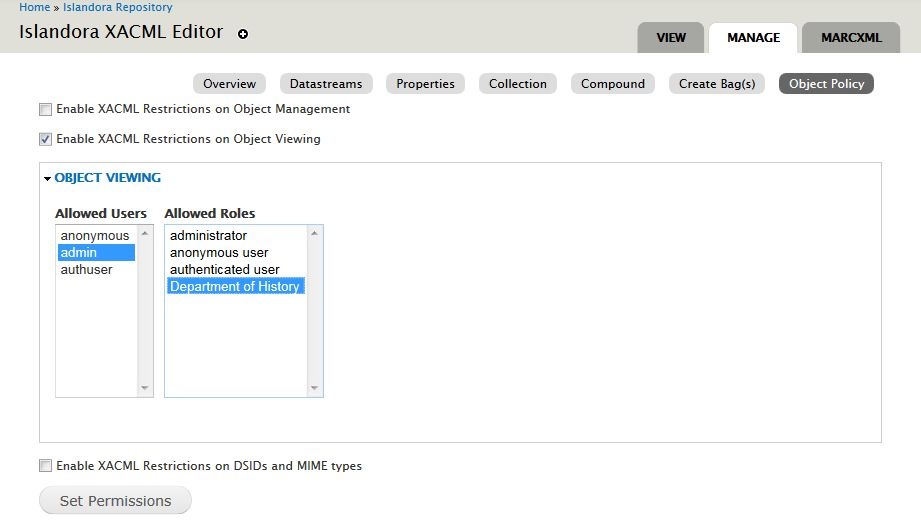
Click Set Permissions. This adds a POLICY datastream that restricts the collection object itself, and any new objects added to this collection will automatically receive the same POLICY.
Below are more detailed instructions on using the Object Policy tab together with Drupal roles and permissions to restrict access to collections, objects, and files.
Object Management
Object Management policies restrict access to the Manage tab on objects or collections to only the users and roles who are highlighted. These users and roles must also have Drupal permissions to perform management functions on repository objects.
Users and roles who have object management permissions also have object viewing permissions, regardless of the settings in Object Viewing. Drupal users with the "administrator" role also have access to manage and view all Islandora collections, regardless of Object Policy settings.
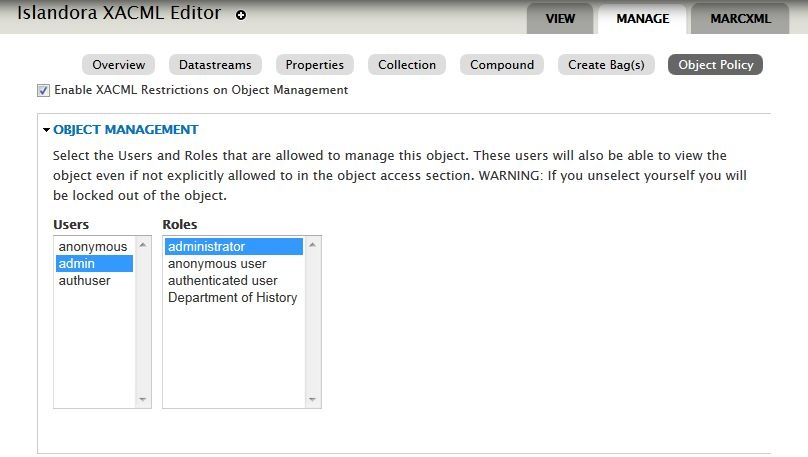
Object Viewing
Object Viewing policies control who can view an object. If this option is not enabled, regular Drupal permissions will apply.
When enabled, this option will grant viewing access only to users and roles who have the necessary Drupal permissions and who are selected in the list of allowed users under Object Viewing. Object viewing permissions also affect all Solr views and search results.
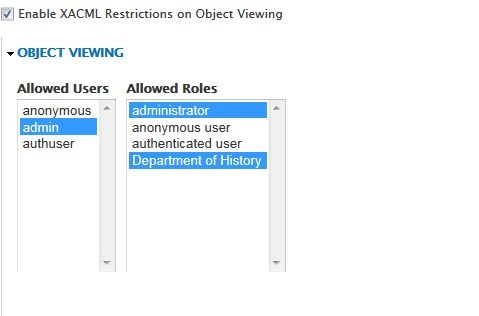
Datastreams and MIME types
Datastream (DSID) and MIME type restrictions control user access to individual datastreams on an object or collection. If this option is enabled, only the selected users will be able to view certain datastreams or file types attached to an object or collection. An example use of this functionality is to restrict the master copy (OBJ) of a file to administrators, but make an access copy or the metadata available to more users.
Viewing restrictions can be added by DSID (Fedora datastream ID, shown in the Manage > Datastreams tab under ID) or by MIME type (shown in the Manage > Datastreams tab under MIME TYPE).
- DSID: Restrict a particular datastream on the object.
- DSID Regex: Create a rule to restrict all data streams fitting a certain pattern or in a certain class, i.e, POLICY/*
- MIME type: Restrict access to a particular MIME type on an object.
- MIME type Regex: Create a rule to restrict all MIME types fitting a certain pattern or in a certain class, i.e, text/*
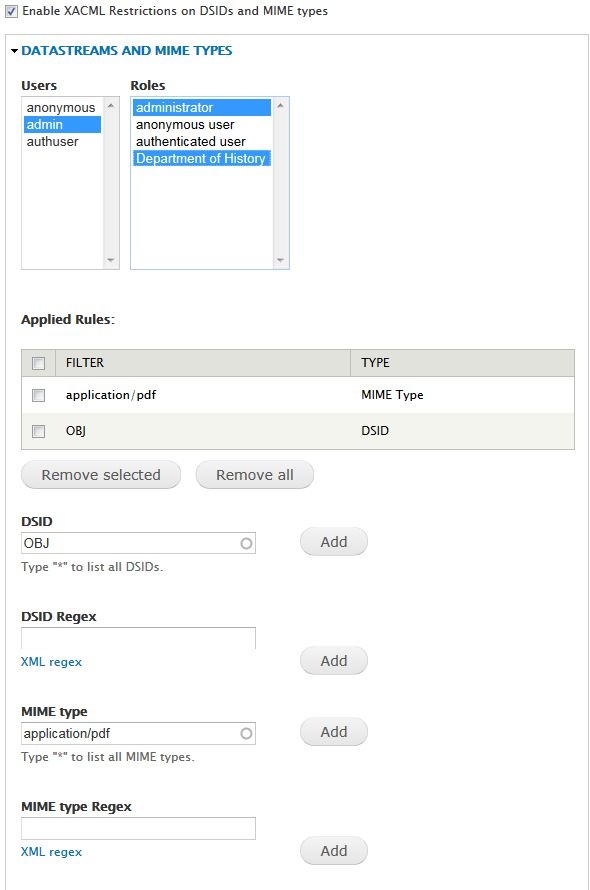
Collection Children
When editing the Object Policy at the collection level, an additional menu is available to determine how the policies will be applied to children of the collection (objects and child collections).
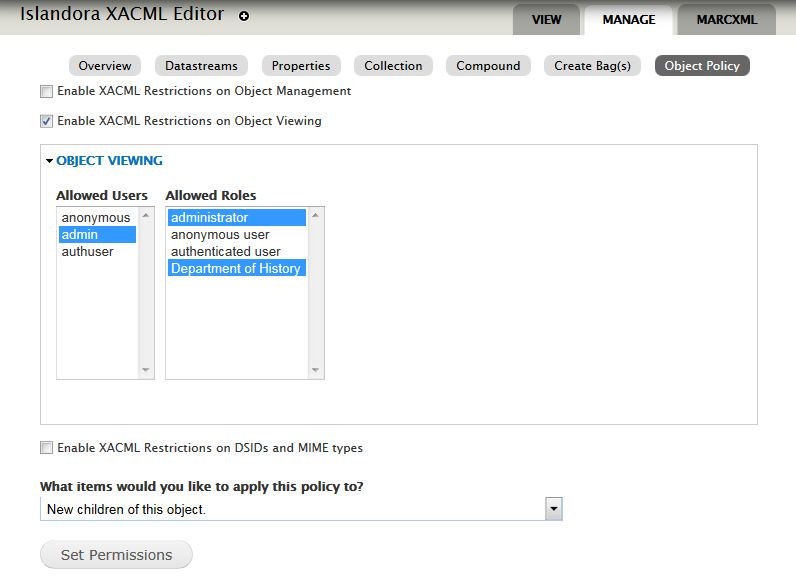
The options are:
- New children of this object: XACML policies will only be applied to newly added objects; existing objects will not be changed.
- All children of this collection and collections within this collection (existing and new)
- All immediate children of this collection (shallow traversal)





